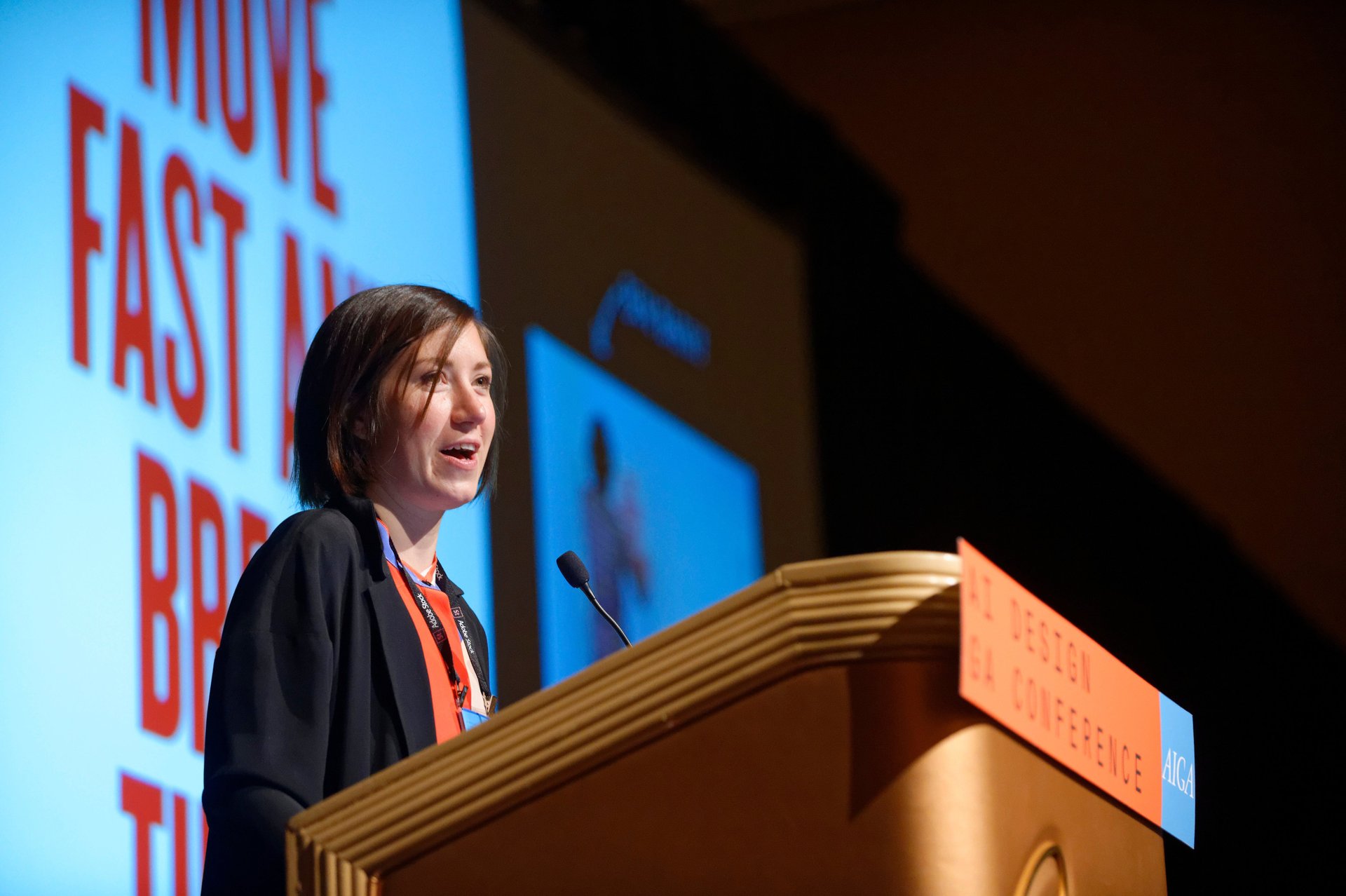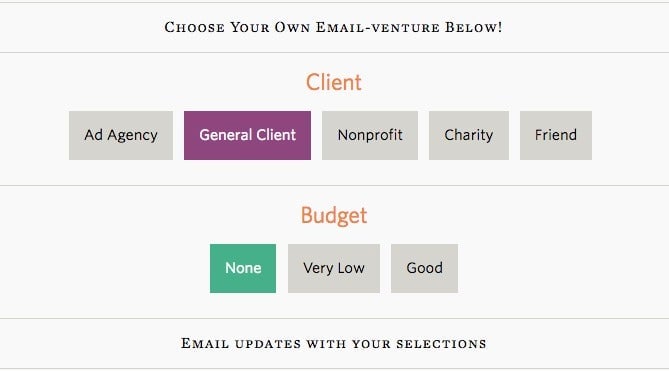Stand your ground in job negotiations with this polite but firm “No” email generator
Having to say no to free work is torture for many designers. Besieged by friends asking them to design a wedding invitation, or by nonprofits and startups calling for a free logo ideas, designers agonize about the right tone and language of their emails to decline commissions without completely turning off a potential client or ending a friendship.


Having to say no to free work is torture for many designers. Besieged by friends asking them to design a wedding invitation, or by nonprofits and startups calling for a free logo ideas, designers agonize about the right tone and language of their emails to decline commissions without completely turning off a potential client or ending a friendship.
This conundrum was familiar to Jessica Hische, a sought-after freelance designer and lettering artist who has published some useful client reply email templates on her blog. “Negotiating incoming project terms over email is difficult for even the well-seasoned professional,” writes Hische who has haggled with all kinds of clients—from big corporations such as Nike, Target and Samsung, to charities and government agencies like OXFAM and the US Postal Service.

The language on her customizable emails is polite but firm. They apply to all designers, artists, and writers who have to negotiate for fair pay.
In reply to an ad agency offering very low pay, she writes:
Thanks for thinking of me for this project and for reaching out. As I am a professional artist, not a hobbyist, and as your company is a for-profit organization, I should be compensated appropriately for work performed. I, and many other creatives, feel strongly about keeping pricing standards high so that it’s possible to make a living as a creative professional. Fair pay is important—it is wrong to ask artists to create very low paying work for a for-profit company, even if that work goes unused, because our time is valuable and we have bills to pay and families to support like everyone else.

For family members, friends or charities asking for free work, Hische’s advice echoes design legend Paula Scher’s philosophy about pro-bono work in exchange for full creative control. To friends asking for freebies, for example, Hische suggests offering them one of these three terms:
We work with a real (but reasonable) budget and I treat you like I would any other client (i.e. excellently) with the same quality/quantity of work delivered and plenty of room for feedback and collaboration.
I work for free, but I have total creative control and do as much work as I can manage in my schedule. I will respect any deadlines that you give me, but appreciate flexibility. In exchange, you can buy me coffee every now and then.
Something between “proper client relationship” and “friend favor”—we limit the rounds of work, I have complete creative control, and you treat me to a fancy dinner or buy me a very (very) nice bottle of whiskey.
“What I try to accomplish with the resources I build, like the Client Email Helper, is to show that it doesn’t have to be so binary—it can start a conversation,” Hische tells Quartz.
Some requests for gratis work can be deceptive too, explains Hische. PR companies can exploit talented but lesser known designers by offering them media exposure in exchange for doing unpaid artwork for a famous corporation or cause. “The issue with that is that I have found that generally work like this very rarely leads to a ‘big break’ with a high paying client. It mostly leads to more requests for free work for social campaigns.”
Asking designers for pro-bono or spec work continues to plague the creative industry and Hische suggests that ending the longstanding practice requires an industry-wide shift. ”I’m hoping to educate others [designers and artists] that we have to collectively work together to keep pricing standards high. When companies know they can get amazing work for free, there is little incentive to pay proper fees.”
Several professional graphic design organizations such as AIGA and Canada’s RGD have taken a stand against the widespread business practice.